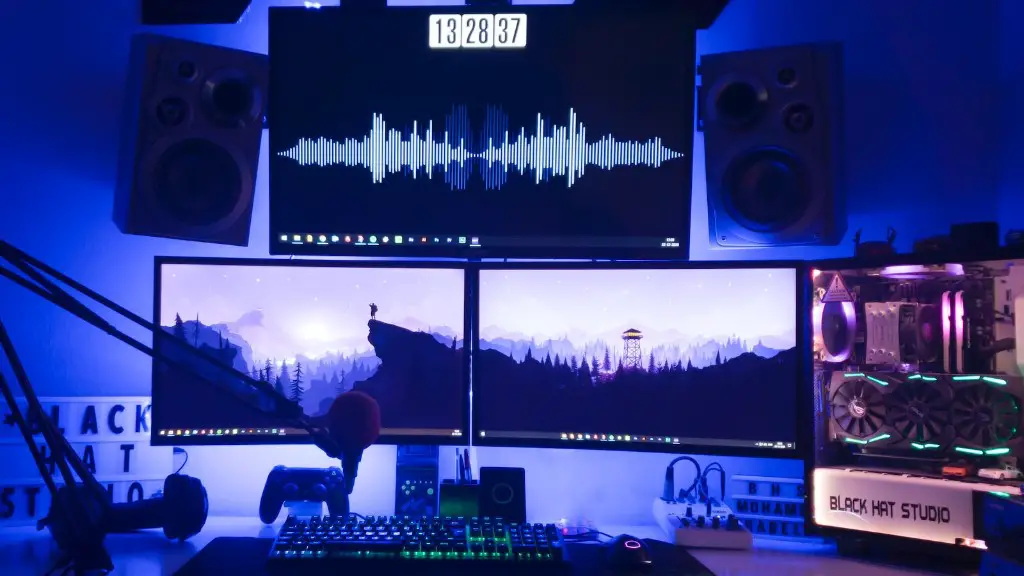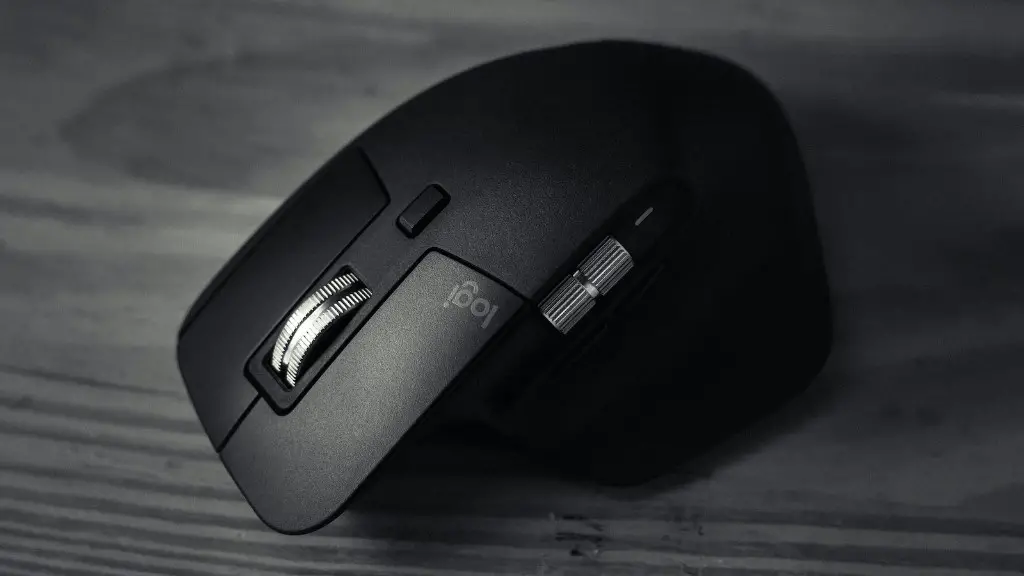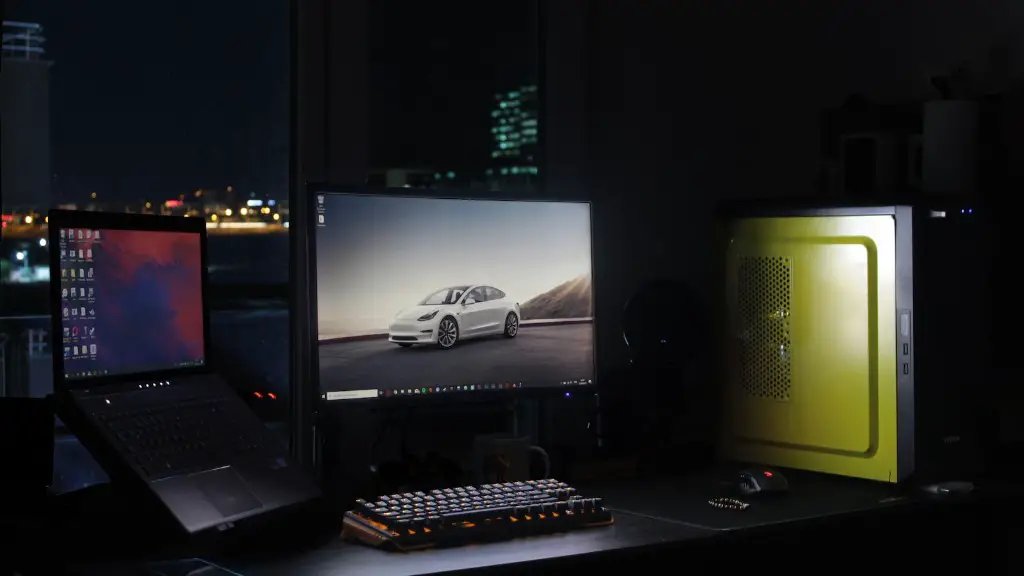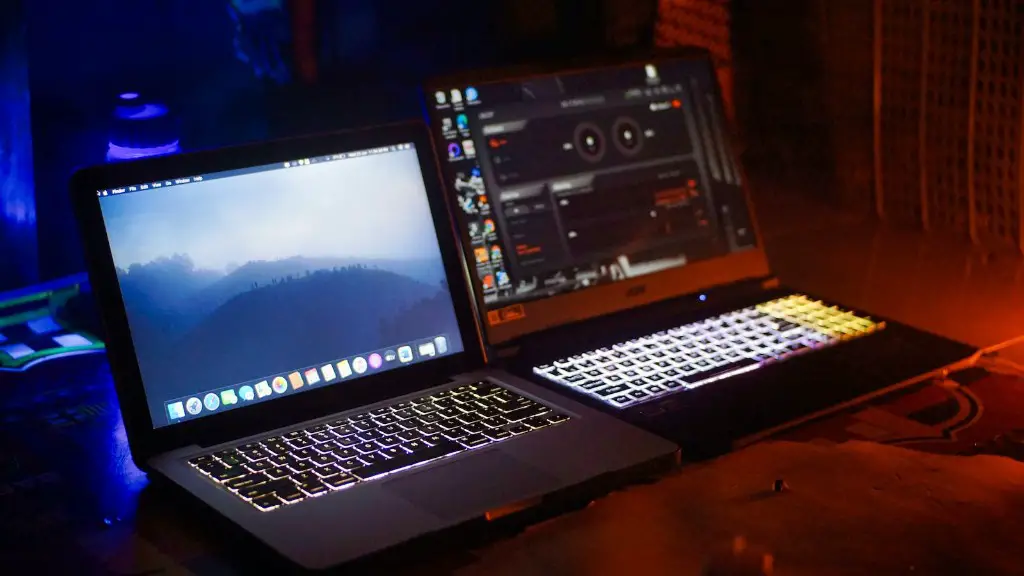When choosing a good gaming PC, it’s essential to consider the following: CPU, GPU, RAM, storage space, cooling, and more. The CPU is the main processor that drives the system, while the GPU is the dedicated graphics chip that delivers faster renderings of images and better performance in gaming. High-end GPUs are capable of faster computations, allowing you to play games at higher settings and resolutions. RAM is crucial because it allows the processor to access data no matter where it is in memory. Without enough RAM, the processor can only access one data set at a time, leading to slow-downs in the gaming experience. Storage space is also vital; the more storage space you have, the more games and programs you can install on your PC.
Cooling is another key factor to consider when choosing a gaming PC. Heat is a major issue with gaming PCs as they are used to run intensive video games and other programs that generate a lot of heat during operation. Investing in a good cooling system will keep your gaming machine running smoothly and enable you to game for longer periods of time without the worry of overheating. It’s also important to consider the size of the case that houses the components, so that you can fit all of the components inside without sacrificing performance.
Finally, there are many kinds of peripherals that are used with gaming PCs, from headsets, keyboards, and mice. When putting together your PC build, it’s important to pick components that will work well with the peripherals you plan to use. For example, if you plan to use a gaming-grade mouse, you’ll want to make sure the motherboard and processor both have enough port slots to accommodate the device. This consideration applies to all peripherals and should be taken into account when making a PC.
GPU Considerations
The GPU is one of the most important components when it comes to gaming PCs, as it is responsible for rendering and displaying the graphics in games. Before you purchase a GPU, it’s important to consider your gaming resolution, budget, and what type of games you intend to play. Low-end GPUs are sufficient for casual games, while mid-to high-end GPUs are necessary for more graphically-demanding titles. It’s also important to consider the CPU and RAM, as they can bottleneck the graphics performance if they are not powerful enough.
When selecting a graphics card, you should look for the manufacturer, model, the amount of memory on the card, the clock speed, and the type of connection. Different cards have different features, so do some research to find out which card works best for your specific needs. Some popular GPUs to consider include NVIDIA’s GeForce series and AMD’s Radeon series.
It’s also important to consider the type of gaming monitor you will use. Monitors come with different resolution settings, frame rates, and aspect ratios, so make sure your GPU can handle the higher resolutions that come with the monitor you choose. Additionally, you should check to make sure the card has the ports you need for your monitor.
Finally, gaming PCs have come a long way in terms of design, with many manufacturers offering unique cases in different sizes and shapes. Choosing the right gaming PC is also about how it looks, so consider the aesthetics of the case before you buy. It’s important to pick something that fits your taste and allows you to show off your system in the most attractive way.
Adding RAM
Adding more RAM can offer numerous benefits to gamers. Not only does it add versatility to a system, but it can also increase the overall performance of the machine. With more RAM, the processor can access more data at once, leading to faster loading times and better performance. If you’re a casual gamer, you may not need a whole lot of RAM, as most games don’t require more than 8GB. However, if you plan to run more resource-intensive programs, you’ll want to look for more RAM.
Adding more RAM also allows you to multitask more efficiently. If you have several programs running at once, more RAM will ensure the processor can access the data it needs quickly and efficiently. When selecting RAM for your gaming PC, it’s important to look for the right type of memory, as different motherboards require different types. You should also consider the RAM clock speed, as higher clock speeds can provide better performance.
It’s also important to factor in the motherboard when selecting RAM. Different motherboards have different RAM slots, so make sure you pick the right type and number of RAM modules. Ideally, you want to aim for four memory modules, as this can provide better performance and higher clock speeds. Additionally, you should make sure the RAM is compatible with the motherboard and with other components you plan to use. If you’re unsure, research the different types of RAM and compare them to find the best fit for your system.
Finally, you can overclock your RAM to get better performance. Some motherboards have built-in overclocking settings, and many users also use software plugins to get the best performance from their system. Overclocking can potentially void your warranty, so it’s best to do some research before attempting it if you’re not sure how to go about it.
Storage and Cooling
Storage and cooling are also important considerations when selecting a gaming PC. The primary storage device is typically a hard drive, though you may also choose a solid-state drive for faster loading times. The size of the storage device ultimately comes down to how much storage you need, with larger storage devices being able to hold more programs and games. Additionally, some gaming PCs come with multiple storage devices, offering more space and more flexibility.
Cooling is another essential factor to consider when shopping for a gaming PC. PCs generate a lot of heat when running intensive programs, so it’s important to invest in a good cooling system. This can come in the form of air or liquid cooling, with air-cooled systems being the most popular. Make sure the cooling system can handle the components you plan to use, as this can help prevent the system from overheating and losing performance.
There are also cases to consider, which come in all shapes and sizes. You may want to choose a case that offers good ventilation and plenty of space for all of your components. Additionally, some gaming PCs come with built-in lights and other decorative features, making them more aesthetically pleasing. There are cases to suit every gamer’s tastes, so be sure to shop around to find the one that best fits your aesthetic.
Finally, many PC gaming manufacturers offer pre-built gaming PCs, which are designed to provide superior performance out-of-the-box. These systems come pre-assembled, so you don’t have to worry about selecting the correct components and assembling them. However, pre-built systems are typically more expensive than custom-built PCs and may be more limited in terms of features.
Essential Accessories
Gaming PCs are not complete without essential peripherals, such as headsets, keyboards, mice, and controllers. It’s important to research the different kinds of gaming peripherals, as they can significantly enhance your gaming experience. You may want to invest in a gaming-grade mouse or headset for a more immersive experience. Gaming controllers can also be used with many different genres of games, so you should consider what type of controller you need before making your purchase.
It’s also important to consider the type of monitor you will use. Different gaming monitors are available in different sizes and resolutions, so make sure the monitor you choose is compatible with the GPU. Monitors with higher refresh rates and resolutions can provide better gaming experiences, but they typically cost more. Additionally, you should make sure the monitor you choose has the ports you need for your GPU.
Finally, you may want to consider adding additional components to your gaming PC, such as extra fans, RGB lighting, or even an extra GPU for more immersive gaming experiences. However, be sure to think about your budget and decide which components are must-haves and which ones can be sacrificed for now.
Final Thoughts
Building a good gaming PC requires research and consideration, but it’s a great way to get the performance and aesthetics you want. The GPU, RAM, storage device, cooling system, and peripherals are all important components to consider, as they can all affect performance and gaming experience. Additionally, you may want to consider overclocking your system to get the best out of it, although this should only be done by experienced users. Finally, remember to pick a case that fits your tastes and has enough space for all of your components.




